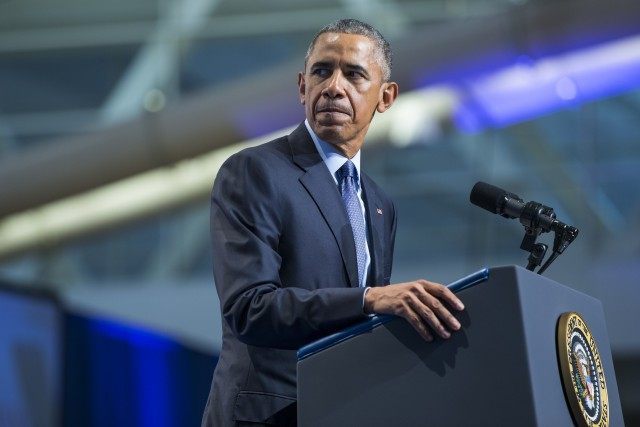Critics of the Iran deal have pointed out that President Barack Obama has imposed a false choice on Congress: accept a bad deal, or go to war–as if those are the only two alternatives. In fact, Obama has imposed a second false choice: either cooperate with the international community, or go it alone.
Actually, the truth is that the U.S. would not be alone if it rejected the deal—and the international community was never united behind sanctions in the first place.
If Congress rejects the deal, and overrides the president’s veto, it would be applauded by Israel and by many of the Sunni Arab states of the Middle East. More than that, the U.S. would likely be supported by France, which held a tougher line than the Obama administration throughout the negotiations. Eventually, if the deal fell apart, the U.S. could lead its European partners back to negotiations–in a weaker position than the P5+1 had in 2013, but stronger than today.
The way Obama tells the story, the world was divided over how to deal with Iran until he came to office and reached out to the international community and united everyone behind sanctions. That is false–George W. Bush built the international consensus on Iran, and Obama resisted sanctions at first–but it also omits the fact that the new UN sanctions enacted on Obama’s watch gave generous waivers to Russia and China, which is why they agreed not to veto them.
With the lifting of international sanctions by the UN Security Council—before Congress has had a chance to review the deal—not much changes for Russia and China. The real change is in Europe, to which Iran will soon be open for business.
But Europe is also within Iran’s missile range, making this a different case from Iraq, where Europe’s commercial interests prevented western unity, leading to war. This time, Europe is willing to be tough–but only if the U.S. leads.
The Iran deal reflects Obama’s deliberate retreat from global leadership—and it also marks another advance for Russia and China, who will exploit Europe’s new economic ties to Iran to justify their own, more nefarious trade in nuclear technology and conventional weapons. They will also gain diplomatic leverage to divide the U.S. and our Atlantic allies.
A global realignment–and not a good one–therefore awaits us, unless Congress rejects Obama’s bad agreement.

COMMENTS
Please let us know if you're having issues with commenting.